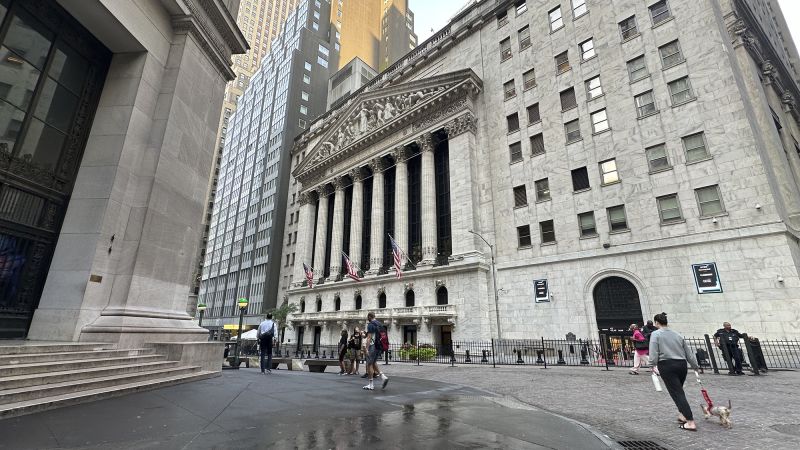September began with a disappointing economic report that caused a 626-point drop in the Dow, or 1.5%. The Institute for Supply Management released a manufacturing report showing a fifth consecutive month of declines, raising concerns that the Federal Reserve’s aggressive rate hikes have negatively impacted the US economy. Traders were already uneasy about upcoming economic news, such as the jobs report on Friday, inflation readings next week, and the anticipated rate cut from the Fed mid-month.
The fear gauge on Wall Street, the VIX, rose and the broader market tumbled. The Nasdaq Composite saw a 3.3% loss, with tech investors becoming concerned about Nvidia’s 9% decline. Questions arose about the AI chipmaker’s valuation and the impact of AI technology on tech companies’ bottom lines. The S&P 500 closed about 2% lower, adding to the market’s overall decline.
Historically, September has been a challenging month for stocks. The recent negative market movements in August sparked concerns that the economy might be heading towards a recession, with the weaker-than-expected jobs report contributing to investor anxiety. However, markets eventually rebounded, closing the month with gains. Despite this, there are lingering concerns about the labor market, with revisions subtracting more than 800,000 jobs from recent payrolls.
The upcoming jobs report on Friday will be crucial for central bank officials before their monetary policy meeting in mid-September. A weak jobs report coupled with a higher unemployment rate could prompt the Fed to implement a significant rate cut, providing relief through lower loan and mortgage rates for consumers and businesses. In addition to economic data, oil prices also dropped on Tuesday due to concerns about global demand, with OPEC expected to increase output despite disruptions in Libya. International benchmark Brent fell to $73.70 a barrel, while US benchmark West Texas Intermediate closed just above $70 a barrel.
In summary, the stock market’s challenging start to September was fueled by a disappointing economic report, which raised concerns about the impact of Fed rate hikes on the US economy. Tech stocks, in particular, faced volatility amid questions about the valuation of AI companies. Market movements in August and September highlighted the uncertainty surrounding the economy, with the upcoming jobs report expected to play a significant role in shaping the Fed’s monetary policy decisions. In addition to market instability, oil prices also dropped due to concerns about softening global demand and upcoming increases in OPEC output.













